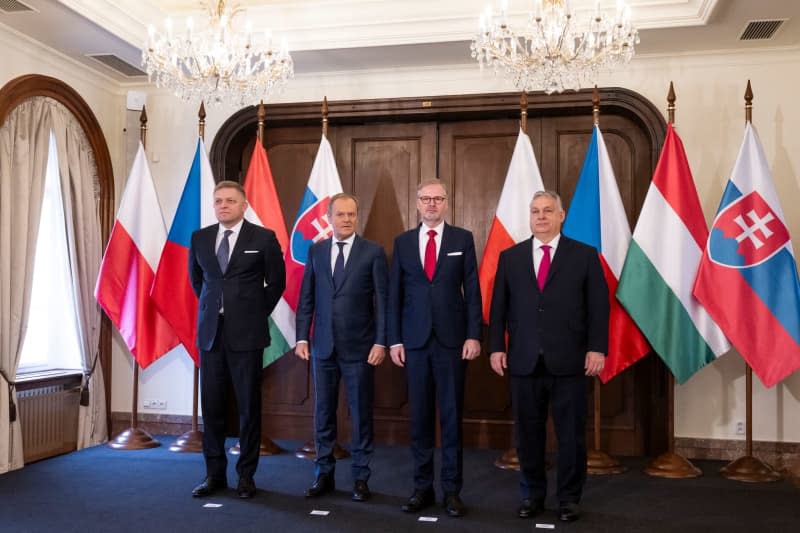Poland, Czech Republic against sending ground troops to Ukraine

- Oops!Something went wrong.Please try again later.
- Oops!Something went wrong.Please try again later.
- Oops!Something went wrong.Please try again later.
- Oops!Something went wrong.Please try again later.
The prime ministers of Poland and the Czech Republic have expressed scepticism about the idea of deploying Western ground troops in Ukraine a day after French President Emmanuel Macron said this could not be ruled out.
Poland is not planning to send any soldiers, Polish Prime Minister Donald Tusk said on Tuesday after a meeting with his Czech counterpart Petr Fiala in Prague.
He said that the focus should be on providing Ukraine with maximum support in its military efforts against the Russian invasion.
Tusk did not comment as to whether this view could change in the future under different circumstances.
Fiala referred to a Czech initiative that aims to procure artillery ammunition from third countries and deliver it to Kiev in cooperation with other European states such as the Netherlands.
Tusk added that if all European Union member states were as committed as the Czech Republic and Poland, there would be no need to discuss other forms of support.
Their comments follow statements made by Macron on Monday evening after a Ukraine aid conference in Paris.
Macron said, "There is no consensus today on officially deploying ground troops."
However, he added, "But nothing can be ruled out in the dynamic. We will do everything necessary to ensure that Russia cannot win this war."
The meeting, which was organized at short notice, featured top representatives from many of Kiev's key European backers, including German Chancellor Olaf Scholz and British Foreign Secretary David Cameron.

